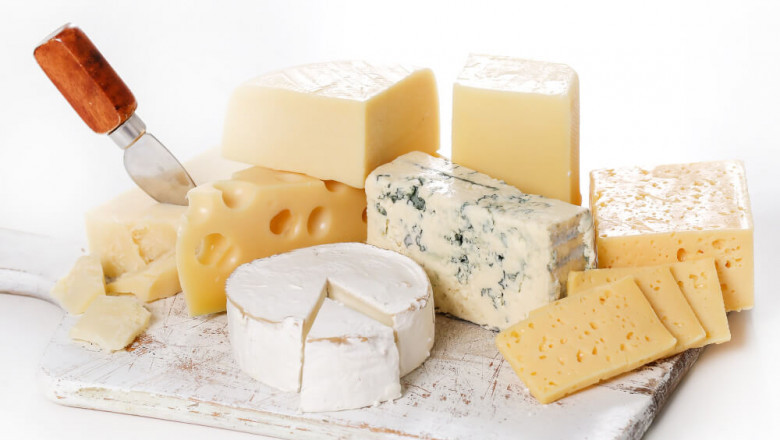views
One of the most significant challenges faced by the cheese alternatives market is replicating the taste and texture of traditional cheese. Cheese is known for its unique combination of flavors and textures, which can be difficult to mimic with plant-based or dairy-free ingredients. Many consumers report that cheese alternatives often lack the creamy, tangy, or savory flavor of real cheese, and the texture may not match the stretchiness or meltiness of dairy cheese, particularly in cooked dishes like pizza or grilled sandwiches. Despite innovations in production and flavoring, this remains a key hurdle for brands in attracting and retaining customers who are loyal to the traditional taste of cheese.
-
Nutritional Value and Quality
While cheese alternatives are often marketed as healthier, plant-based options, they do not always offer the same nutritional benefits as dairy cheese. Dairy cheese is a rich source of protein, calcium, and other essential nutrients, and many consumers are concerned about the nutritional profile of plant-based alternatives. Some cheese alternatives are made using processed ingredients, artificial additives, and flavor enhancers, which may not provide the same nutritional value. Furthermore, many plant-based cheeses are often lower in protein and may lack the same beneficial fats found in dairy cheese. Balancing taste, texture, and nutrition is a significant pain point for manufacturers in the cheese alternatives space.
-
Cost and Accessibility
Another challenge that impacts the growth of the cheese alternatives market is the high cost of production, which is reflected in the retail prices of many plant-based cheese products. The production of cheese alternatives often requires specialized ingredients, advanced processing technologies, and unique supply chains, all of which contribute to higher production costs. As a result, plant-based cheeses tend to be more expensive than their dairy counterparts, making them less accessible to price-sensitive consumers. Moreover, availability in grocery stores and foodservice outlets can be limited, especially in regions where demand for plant-based products is still emerging.
-
Consumer Education and Awareness
Despite the growing popularity of plant-based diets, there is still a significant gap in consumer knowledge about cheese alternatives. Many consumers remain unaware of the wide range of plant-based cheese products available and their potential benefits. There is also confusion regarding the nutritional content and ingredients in these alternatives. The cheese alternatives market often struggles to educate consumers about how these products can be used in everyday cooking and meal preparation. Additionally, many consumers may not fully understand the differences between various plant-based cheese options, such as those made from nuts, soy, or coconut oil, which can lead to skepticism or hesitation when purchasing these products.
Impacting Factors on the Cheese Alternatives Market
-
Changing Consumer Preferences
One of the driving factors for the growth of the cheese alternatives market is the shift in consumer preferences towards healthier, more sustainable food choices. With rising awareness of environmental and animal welfare issues, many consumers are turning to plant-based diets. The desire for more ethical, cruelty-free, and environmentally friendly options has fueled the demand for cheese alternatives. As a result, manufacturers are increasingly focusing on developing innovative plant-based cheese products to meet the needs of this growing consumer segment.
-
Dietary Trends and Health Consciousness
The increasing adoption of dietary trends such as veganism, lactose intolerance, and gluten-free eating has played a significant role in shaping the cheese alternatives market. As more individuals avoid dairy due to health concerns, food allergies, or ethical beliefs, the demand for non-dairy cheese substitutes has surged. Additionally, there is a growing interest in plant-based diets that emphasize whole, unprocessed foods. This trend has pushed the market to expand beyond traditional dairy-free cheese products to include more clean-label and minimally processed alternatives.
-
Technological Advancements
Advancements in food technology and production methods are having a profound impact on the cheese alternatives market. Manufacturers are leveraging cutting-edge technologies to improve the taste, texture, and nutritional profile of plant-based cheese products. Innovations in fermentation, enzyme technologies, and alternative protein sources have enabled the development of more realistic cheese alternatives that better replicate the sensory properties of traditional cheese. These advancements are expected to drive continued growth and help overcome some of the challenges related to taste and texture.
-
Sustainability and Environmental Considerations
The growing awareness of the environmental impact of animal agriculture is also driving demand for cheese alternatives. Dairy farming contributes significantly to greenhouse gas emissions, water consumption, and land use. As consumers become more conscious of their environmental footprint, many are opting for plant-based alternatives to reduce their carbon impact. Companies that prioritize sustainability in their production processes and packaging are likely to gain a competitive advantage in the market.
-
Product Innovation and Branding
In response to increasing consumer demand for cheese alternatives, companies are focusing on innovation and branding strategies to differentiate their products in a crowded market. New product offerings, such as dairy-free cheese spreads, blocks, and shreds, cater to diverse culinary preferences. At the same time, brands are investing in marketing efforts to highlight the quality, sustainability, and health benefits of their products. Strong branding and effective consumer engagement can significantly impact consumer perceptions and drive market growth.
Conclusion
The cheese alternatives market is growing rapidly as consumer demand for plant-based and dairy-free products continues to rise. However, it is not without its challenges. Taste and texture issues, nutritional concerns, high production costs, and limited consumer awareness remain key pain points for the sector. Nonetheless, changing consumer preferences, dietary trends, technological advancements, and sustainability concerns are driving the growth of the market. As manufacturers continue to innovate and address these pain points, the future of the cheese alternatives market looks promising, with increasing options and improved products poised to capture a larger share of the market.






















Comments
0 comment